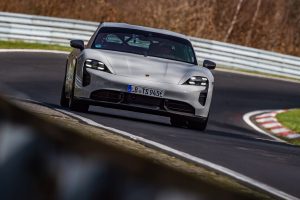The world’s largest autonomous vehicle test, conducted by Vanderbilt University and several other universities in cooperation with Nissan, Toyota, General Motors, and the Tennessee DOT, will commence next week.
Autonomous driving is one of, if not the most significant advancement currently coming to the automotive industry. However, along with this technology, there are understandable worries about safety and implementation. Hence, to test autonomous vehicles’ effect on real-world driving, a group of legacy automakers is participating in the world’s largest autonomous driving test on a highway section near Nashville, Tennessee. Researchers will observe the effect on the pace of traffic and attempt to confirm if autonomous vehicles can limit “human-caused traffic jams.”
According to Vanderbilt, the autonomous driving test operates under strict limitations. The university will deploy 100 autonomous vehicles on a 4-mile stretch of I-24, and the test will be run between 5 am and 10:30 am. The tested vehicles include Nissan Rouge, Toyota RAV4, and Cadillac XT5, each equipped with autonomous driving technology.
The test on I-24 is the product of a smaller-scale test performed earlier this year. In the smaller scale test, performed on a test track with a total of 20 vehicles, a single autonomous vehicle was able to affect the pace of driving of the entire group. Now, the universities and automakers are looking to see if they can replicate their initial results in the real world. Researchers will also observe if average fuel economy improvements seen in the smaller scale test are reproduced.
Nashville’s I-24 section is being chosen as the testing location for a specific reason. The highway section, named the “I-24 MOTION testbed,” is equipped with 300 4k camera sensors placed on poles that are spaced 600 feet apart along the highway section. This amazing level of data collection can not only allow researchers to see the average speed of traffic and other statistics, but can provide an unparalleled viewpoint as they attempt to observe the individual autonomous cars and how they interact with other drivers.
Vanderbilt University’s press release didn’t outline how their research may be affecting the vehicles that the participating automakers put out in the future. Still, there is no doubt that the automakers will be leveraging the test to observe their own (and competitor) vehicles operating in the real world, perhaps leading to autonomous driving improvements soon.





